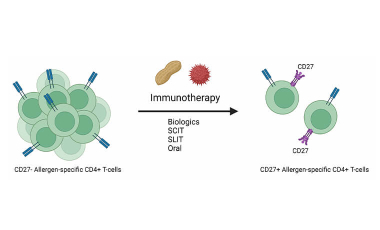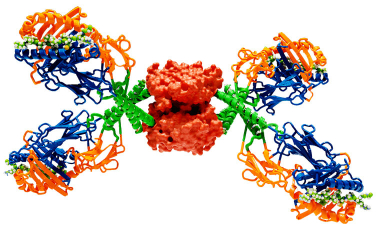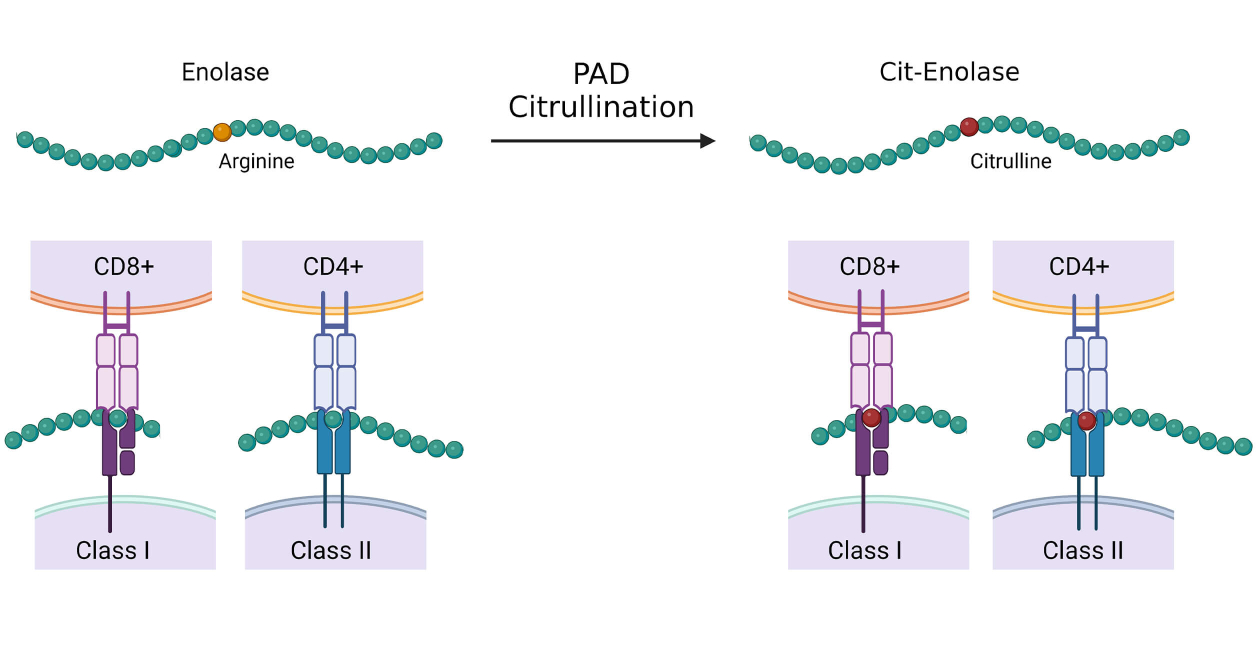Rheumatoid arthritis (RA) is an autoimmune disease that affects more than 12 million people worldwide. Approximately 70% of RA subjects have anticitrullinated protein antibodies (ACPA), while the remainder are seronegative. Presentation of citrullinated peptides to CD4+ T cells should play a role in the generation and affinity maturation of ACPA and has been implicated in disease pathogenesis. However, recent reports suggest that CD4+ and CD8+ T cells directed against both citrullinated and unmodified peptides play a role in disease.
In this project we seek to define disease relevant epitopes recognized by CD4+ and CD8+ T cells that are derived from joint-associated autoantigens, through broad characterization of peripheral blood and synovial tissue samples from patients with RA.
We are using a CD154 up-regulation assay and class II tetramer reagents for CD4+ T cell epitope identification and a CD137 up-regulation assay for CD8+ T cell epitope identification.
Mass spectrometry will also be used to assist the identification of these T cell epitopes. Phenotypes of these T cells in peripheral blood and joints will also be examined to evaluate the pathogenic natures of these T cells.
This project is a joint effort with BRI colleagues, Dr. Jane Buckner and Dr. Eddie James, and Dr. Shao-En Ong of University of Washington.
Additional Research Projects

Allergen epitope specific CD4+ T cells
Class II tetramer reagents to investigate allergen epitope specific T cells in allergic diseases and immunotherapy

DNA-barcoded HLA class II tetramers
DNA-barcoded tetramers are used to examine TCR clonotype, transcriptomics, surface protein expression of epitope specific CD4+ T cells.



